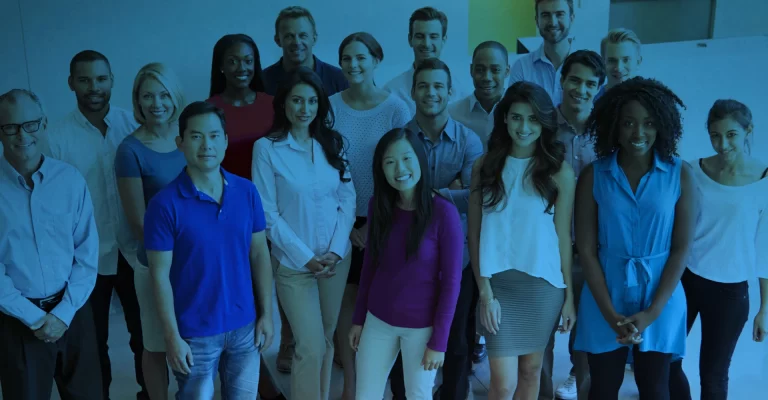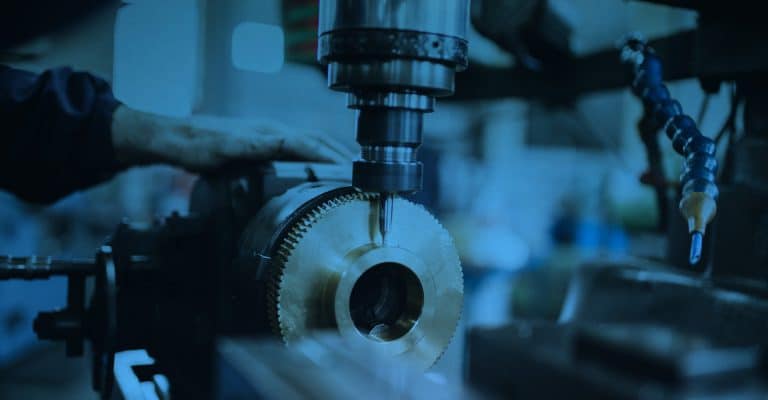- RESEARCHDistance Learning at AIU is enhanced by vast academic resources and innovative technologies build into the Virtual Campus: Hundreds of self-paced courses with video lectures and step by step lessons, thousands of optional assignments, 140,000 e-books, the Social Media & Networking platform allowing collaboration/chat/communications between students, and MYAIU develop students holistically in 11 areas beyond just academics.
- PROGRAMS OFFERED
- Areas of Study
- Courses and Curriculum
- Open Courses
- Register for a Program
- Associate Program
- Associate in Addiction Counseling
- Associate in Agriculture Food And Resources
- Associate in Anti Terrorism Security
- Associate in Behavior Analysis In Special Education
- Associate in Bioethics
- Associate in Climatology
- Associate in Cultural Theological Communication
- Associate in Culinary Arts
- Associate in Ecotechnology
- View all Associates Programs
- Bachelor Program
- Bachelors in Community Development
- Bachelors in Environmental Science
- Bachelor in Education (B.Ed, BS)
- Bachelors in Economics
- Bachelors in Entrepreneurship
- Bachelors in Financial Administration
- Bachelors in Human Resource Management
- Bachelors in Linguistics
- Bachelors in Nutritional Science
- Bachelors in Occupational Health and Safety
- Bachelors in Psychology
- View all Bachelor Programs
- Doctorate Program
- Doctor | of Biology (PhD)
- Doctorate in Business Administration (DBA, PhD)
- Doctor of Economics (PhD)
- Doctor of Electrical Engineering (D.Sc, PhD)
- Doctor of Finance (PhD)
- Doctorate in International Relations
- Doctorate in Information Technology (D.Sc)
- Doctor of Legal Studies (PhD)
- Doctor of Project Management (PhD)
- Doctor of Sociology (PhD, D.Sc)
- Doctorate in Sustainable Natural Resources Management
- View all Doctorate Programs
- Master Program
- Postdoctoral Program
- Postdoctoral in Animal Science
- Postdoctoral in Anti Terrorism Security
- Postdoctoral in Behavior Analysis In Special Education
- Postdoctoral in Bioethics
- Postdoctoral in Blockchain Technology and Digital Currency
- Postdoctoral in Business Management
- Postdoctoral in Cloud Computing
- Postdoctoral in Computer Engineering
- View all Postdoctoral Programs
AIU offers a wide range of majors in areas including the Arts, Business, Science, Technology, Social, and Human studies. More than 120 degrees and programs are available for adult learners at the associate’s, bachelor’s, master’s, doctoral and postdoctoral level. - VIRTUAL CAMPUS
Distance Learning at AIU is enhanced by vast academic resources and innovative technologies build into the Virtual Campus: Hundreds of self-paced courses with video lectures and step by step lessons, thousands of optional assignments, 140,000 e-books, the Social Media & Networking platform allowing collaboration/chat/communications between students, and MYAIU develop students holistically in 11 areas beyond just academics.
- ALUMNI
The world is YOUR campus!”, that is the message of AIU’s month magazine Campus Mundi. Hear the voices and see the faces that make up AIU. Campus Mundi brings the world of AIU to you every months with inspirational stories, news and achievements by AIU members from around the world (students and staff are located in over 200 countries).
Bioplastics a Sustainable Alternative to Traditional Plastics
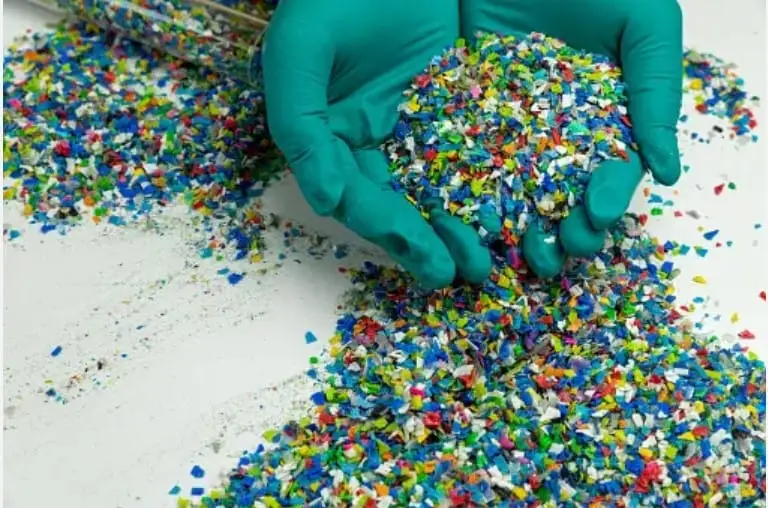
How could switching to bioplastics in your daily life transform our planet’s future and reduce your environmental footprint?
Imagine a world free of plastic pollution; how do bioplastics play a crucial role in achieving this vision?
In what ways can adopting bioplastics inspire innovation and sustainability in your career or personal projects?
Please review the course material provided below. Then, create an essay that addresses the given topic. What are your thoughts and perspectives on the matter?
(Log in to your student section to access the AIU Additional Resources Library.)
Is there a Sustainable Alternative to Traditional Plastics?
In the heart of Atlantic International University’s mission lies the commitment to fostering an educational environment that transcends traditional boundaries and nurtures personal development. As we commemorate Earth Month, it becomes imperative to explore solutions that align with our goals of sustainability and innovation. One such promising solution is bioplastics—a sustainable alternative to traditional plastics that embodies our dedication to experiential learning and the advancement of knowledge for the common good.
The Urgency for Alternatives
The environmental impact of conventional plastics is a growing concern, with millions of tons ending up in landfills and oceans every year, causing significant harm to ecosystems and marine life. The need for alternatives has never been more critical, and bioplastics offer a beacon of hope. Derived from renewable biomass sources, bioplastics present a lower carbon footprint and are designed to biodegrade, addressing two major environmental issues: pollution and resource depletion.
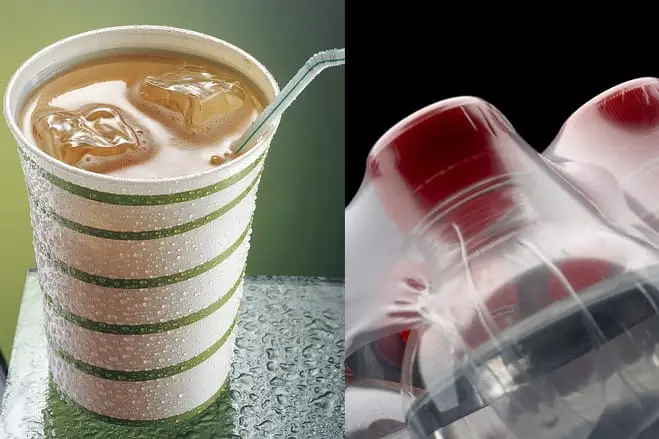
Source: WSJ
Understanding Bioplastics
Bioplastics are not a singular entity but a diverse family of materials with varying properties and applications. They can be broadly classified into two categories: biodegradable plastics, which can break down naturally into organic substances, and bio-based plastics, which are made from biological substances but may not necessarily biodegrade. This distinction is crucial for understanding the environmental benefits and limitations of different bioplastic types.
Production and Raw Materials
The production of bioplastics utilizes renewable resources such as corn starch, sugarcane, and cellulose. Innovations in agricultural practices and genetic engineering have improved the efficiency and sustainability of these crops, making bioplastics a more viable option.
Environmental Impact
The environmental benefits of bioplastics are manifold. They offer a significant reduction in carbon emissions compared to fossil fuel-based plastics. Moreover, their biodegradability can contribute to reduced waste in landfills and oceans. However, it’s essential to critically assess the lifecycle of bioplastics, from production to disposal, to ensure a truly sustainable approach. Our university advocates for a holistic understanding of environmental impact, encouraging students to explore and contribute to lifecycle analysis research within the field of bioplastics.
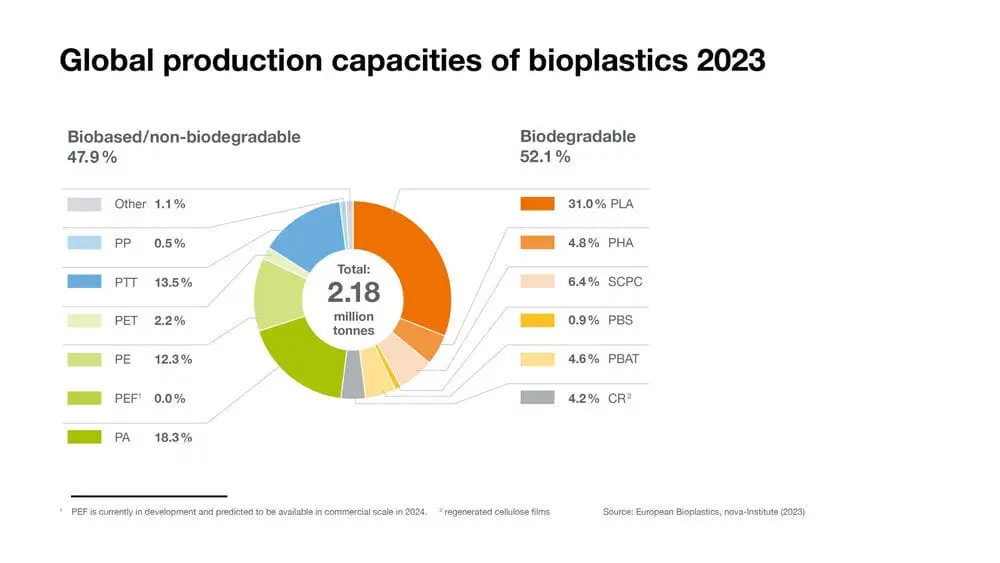
Source: EUBP
Challenges and Opportunities
While bioplastics herald a new era of sustainable materials, they also present challenges, including competition with food production for raw materials, biodegradability under specific conditions, and recycling complexities. These challenges offer a fertile ground for research, innovation, and policy development.
The Role of Education and Research
Education and research play pivotal roles in advancing the bioplastics industry. By fostering a learning environment that emphasizes critical thinking, problem-solving, and innovation, AIU prepares students to contribute meaningally to this field. Collaborative research projects, interdisciplinary approaches, and partnerships with industry stakeholders are essential in overcoming the challenges and harnessing the opportunities presented by bioplastics.
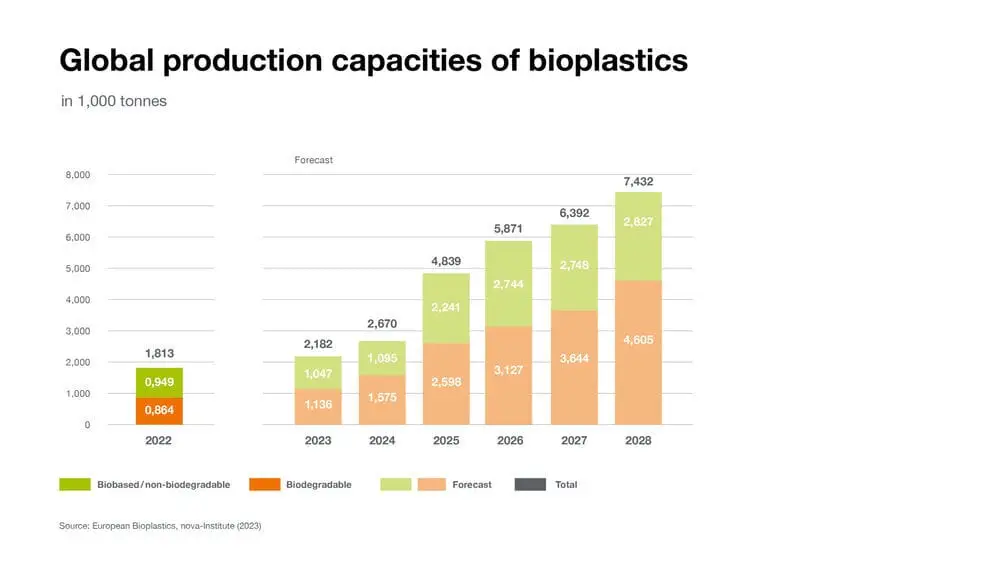
Source: EUBP
Towards a Sustainable Future
In commemorating Earth Month, let us reaffirm our commitment to sustainability, innovation, and the betterment of our planet. The exploration of bioplastics as a sustainable alternative to traditional plastics is not just an academic exercise but a call to action for all of us to contribute to a legacy of environmental stewardship and a brighter future for generations to come.
Learn about some of the bioplastics innovations that are reshaping industries by offering more sustainable alternatives to traditional plastics:
- PLA (Polylactic Acid) Plastics: Derived from fermented plant starch (usually corn), PLA is one of the most common types of bioplastics used today. It’s utilized in a variety of products, including packaging, disposable tableware, and even 3D printing filament. PLA is biodegradable under industrial composting conditions and represents a significant step towards reducing petroleum-based plastic usage.
- PHA (Polyhydroxyalkanoates) Plastics: PHAs are produced by microorganisms during fermentation processes and can be derived from renewable biomass sources. They are both biodegradable and compostable in natural environments, making them an ideal choice for agricultural films, packaging, and even medical applications like sutures and implants.
- Edible Water Bottles: Innovations in bioplastics have led to the development of edible water bottles made from seaweed and plant extracts. These biodegradable and edible containers offer a novel way to hydrate without contributing to plastic waste. Companies like Notpla are pioneering this technology, aiming to replace single-use plastic bottles at events and in consumer products.
- Algae-Based Bioplastics: Algae have emerged as a promising raw material for bioplastics due to their rapid growth rates and ability to sequester carbon dioxide. Algae-based bioplastics are being developed for use in packaging, agricultural films, and even automotive parts. This innovation not only reduces reliance on fossil fuels but also utilizes CO2, helping mitigate climate change.
- Coffee Ground Bioplastics: Companies are exploring the use of spent coffee grounds combined with biopolymers to create durable and compostable bioplastics. These materials can be used for manufacturing consumer products like coffee cups, which significantly reduces waste and utilizes a widely available organic waste product.
These examples highlight the diverse and innovative ways in which bioplastics are being developed and applied across different sectors, showcasing the potential for sustainable alternatives to traditional plastics and contributing to global efforts to reduce plastic pollution and its environmental impacts.
Atlantic International University champions the exploration of sustainable alternatives like bioplastics as part of our commitment to experiential learning, innovation, and contributing to the common good. By inviting our community to develop their best selves through education and research, we collectively work towards leaving a lasting legacy—one that harmonizes with the principles of sustainability and environmental responsibility. Let Earth Month be a reminder of our shared commitment and a catalyst for continued exploration, learning, and action in the realm of sustainable materials and beyond.
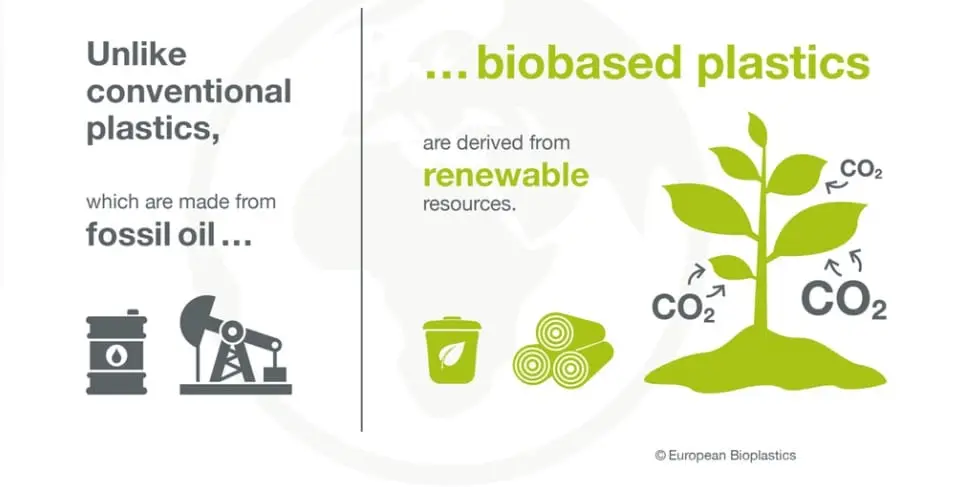
Learn about some of the bioplastics innovations that are reshaping industries by offering more sustainable alternatives to traditional plastics:
Are bioplastics the solution to the plastic pollution problem?
University of Washington Develops Fire Resistant and Recyclable Bioplastic.
Are Bioplastics Compostable? Part 1.
Trends in PHA Production by Microbially Diverse and Functionally Distinct Communities.
Reminder to our Dear Students,
Please ensure you are logged in as a student on the AIU platform and logged into the AIU Online
Library before accessing course links. This step is crucial for uninterrupted access to your learning
resources.
AIU Success Stories







Contact Us Today!
Begin Your Journey!
AIU’s Summer of Innovation and Growth gives you the ability to earn up to $5000 in tuition credit by completing free lessons and courses.
Whether you’re looking to acquire new skills, advance your career, or simply explore new interests, AIU is your gateway to a world of opportunities. With free access to 3400 lessons and hundreds of courses the ability to earn credits and earn certificates there’s no better time to start learning.
Join us today as a Guest Student and take the first step towards a brighter, more empowered future.
Explore. Learn. Achieve.

Contact Us
Atlantic International University
900 Fort Street Mall 905 Honolulu, HI 96813 [email protected]
Quick Links
Home | Online Courses | Available Courses | Virtual Campus | Career Center | Available Positions | Ask Career Coach | The Job Interview | Resume Writing | Accreditation | Areas of Study | Bachelor Degree Programs | Masters Degree Programs | Doctoral Degree Programs | Course & Curriculum | Human Rights | Online Library | Representations | Student Publication | Sponsors | General Information | Mission & Vision | School of Business and Economics | School of Science and Engineering | School of Social and Human Studies | Media Center | Admission Requirements | Apply Online | Tuition | Faculty & Staff | Distance Learning Overview | Student Testimonials | AIU Blogs | Register for Program | Privacy Policy | FAQ











